“Marc17 In The House” Documentary
At 68, retired software salesman Marc Gedansky is an unlikely fixture of Boston's underground house music scene. But when the pandemic shutters nightclubs and a hip replacement surgery goes awry, Marc is cut off from his chosen community of fellow dancers and must face the hard truths of his life.
A story about making up for lost time, "Marc17 In The House" chronicles one man's fight to defy his age and reclaim the dance floor. For more information about the project, please visit www.marc17film.com
The following is a screener cut of the film. Password required. Please do not distribute. Festival submissions are ongoing with the hope to premiere the film in fall 2023.
Film synopsis
THE STORY BEGINS amidst the COVID-19 pandemic, six months after nightclubs have closed indefinitely. Marc – 68, divorced, living alone – describes how he fell in love with dancing twelve years ago after chronic leg injuries put an end to his passion for playing basketball. After a brutal breakup and a heart attack, he moved out, got in great shape, and started going out dancing up to six nights a week.
But now, he’s cut off from his chosen community of fellow club-goers, and, to make matters worse, he is facing a hip re-replacement, his eleventh orthopedic procedure. After surgery, Marc returns from the hospital with nerve loss throughout his left leg, a post-surgical condition known as “drop foot.” Facing the hardest rehab of his life, he is now staring down the barrel of the COVID-winter of 2020-2021 – alone, immobile, and uncertain about what lies ahead. Without any feeling in his foot, Marc wonders if he’ll ever be able to dance again.
From the isolation imposed by his worsening prognosis, Marc must take stock of his life away from the dancefloor and the community he called his own.
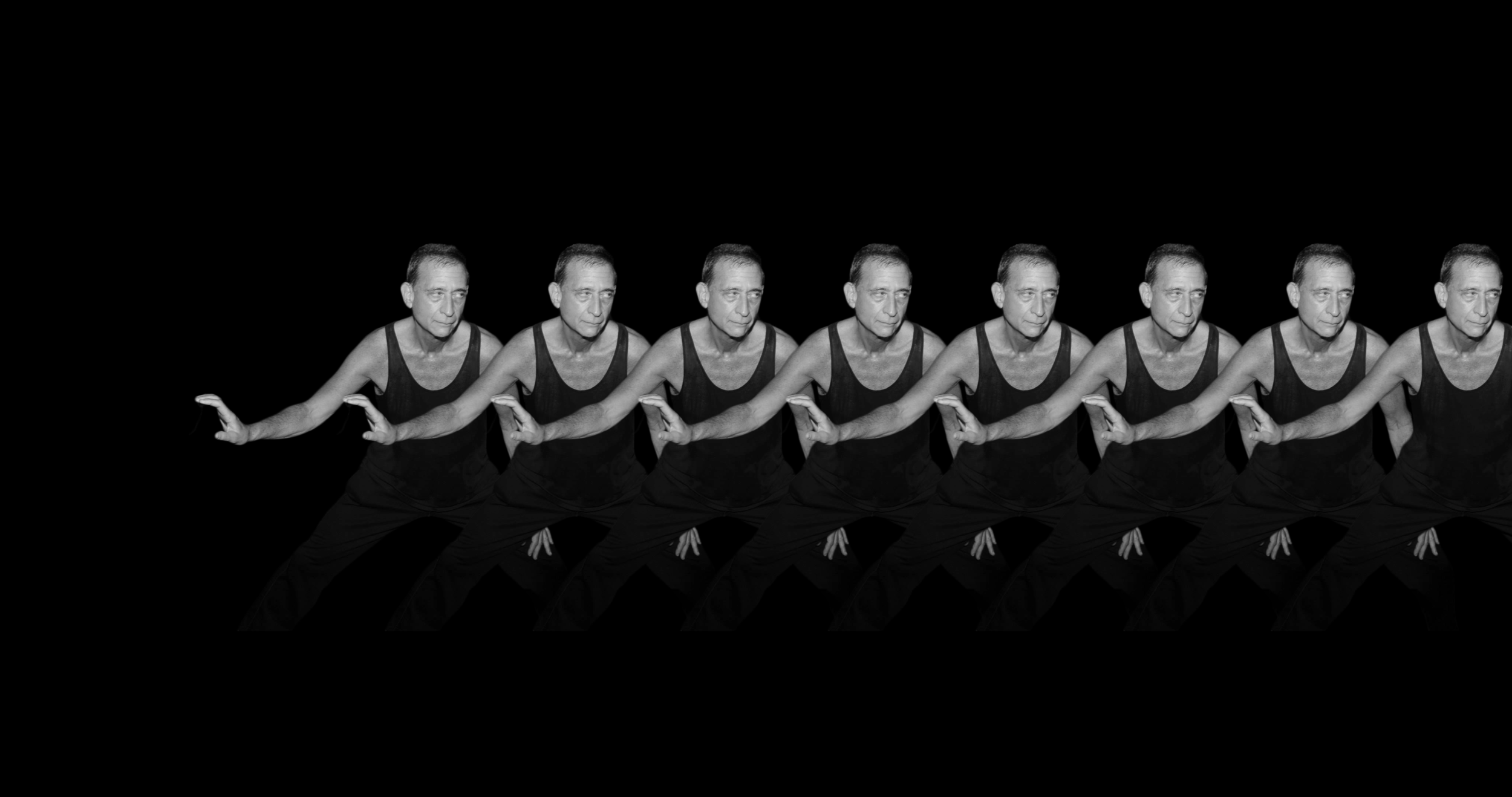
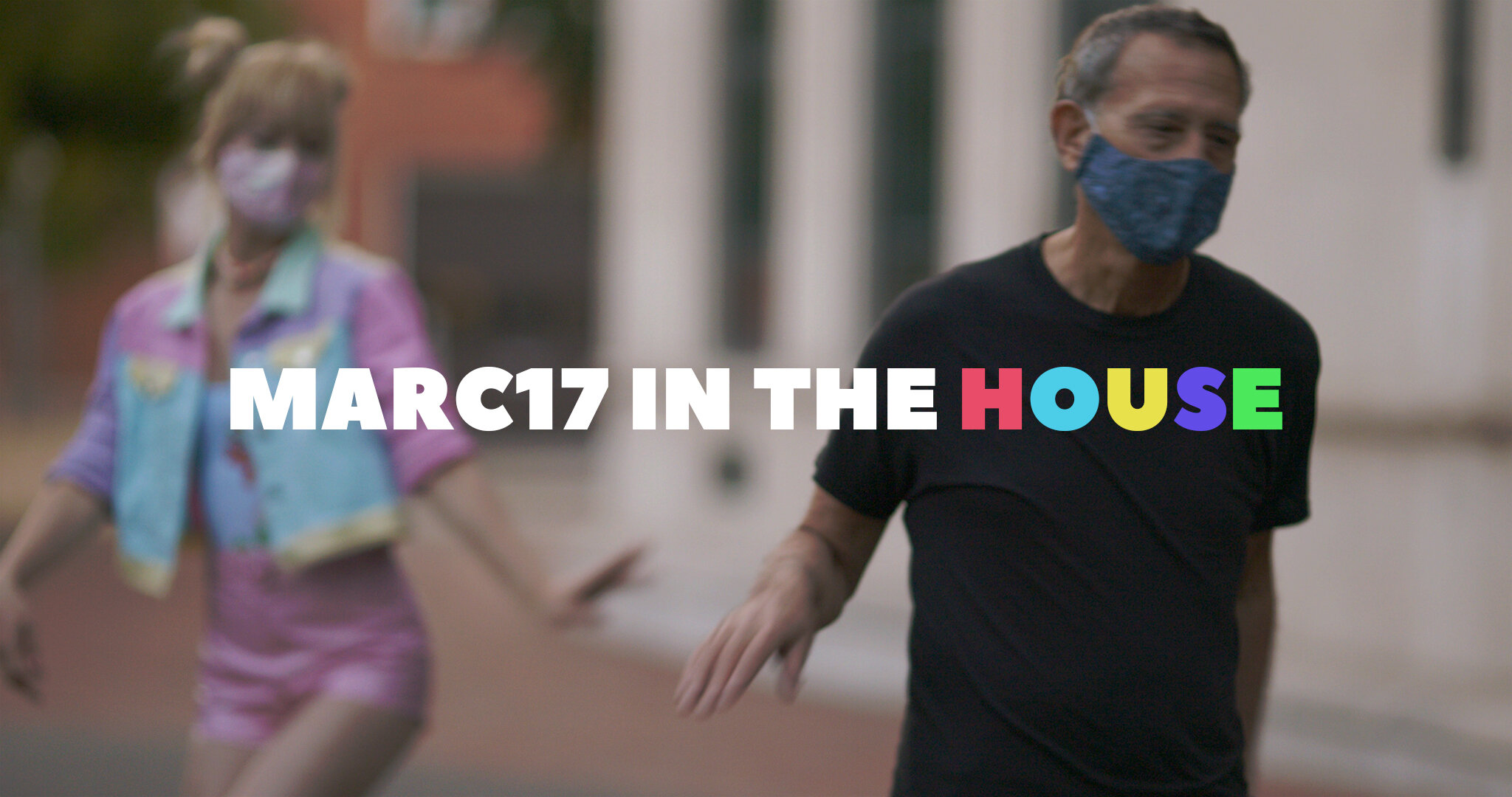
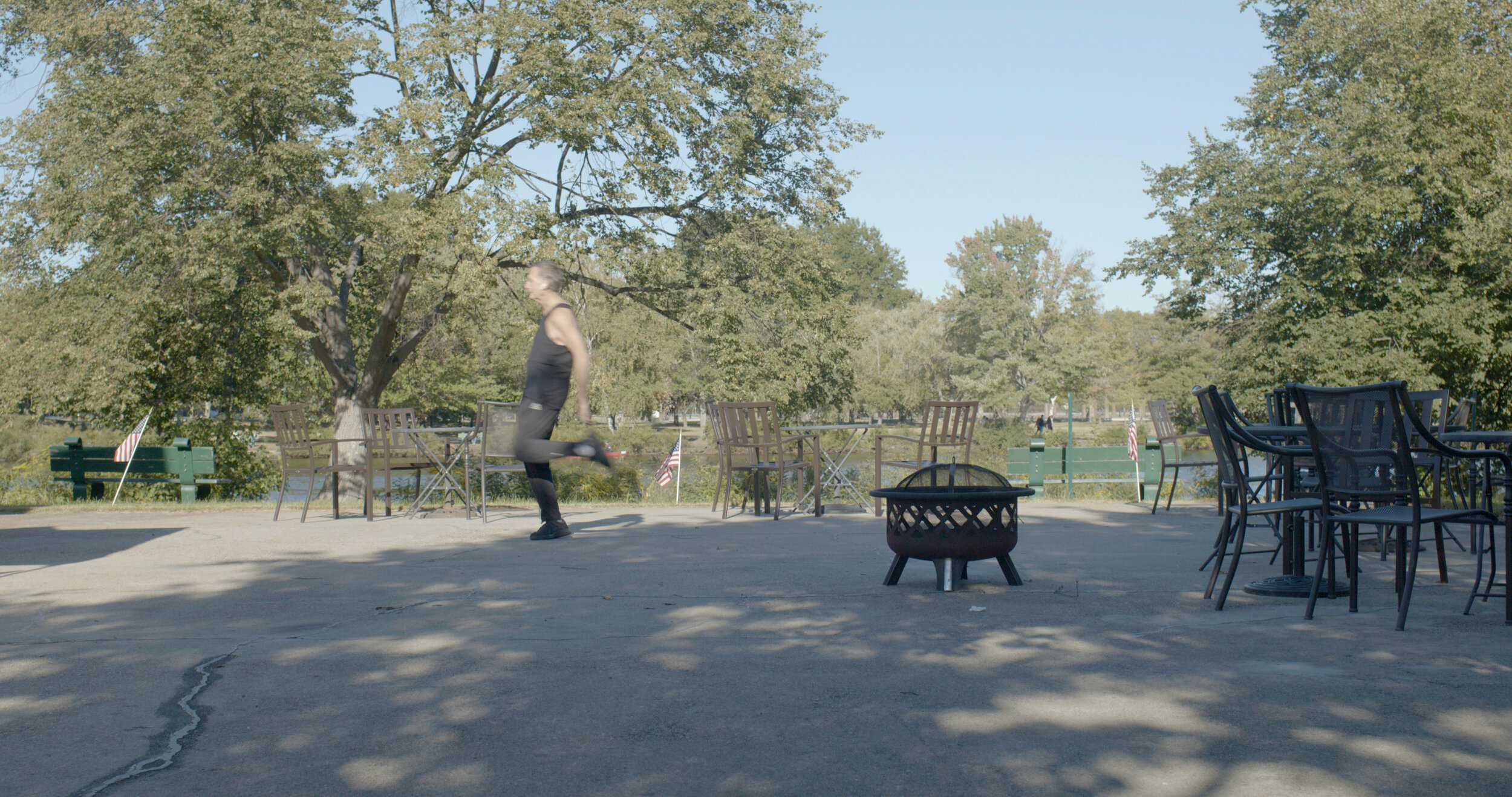
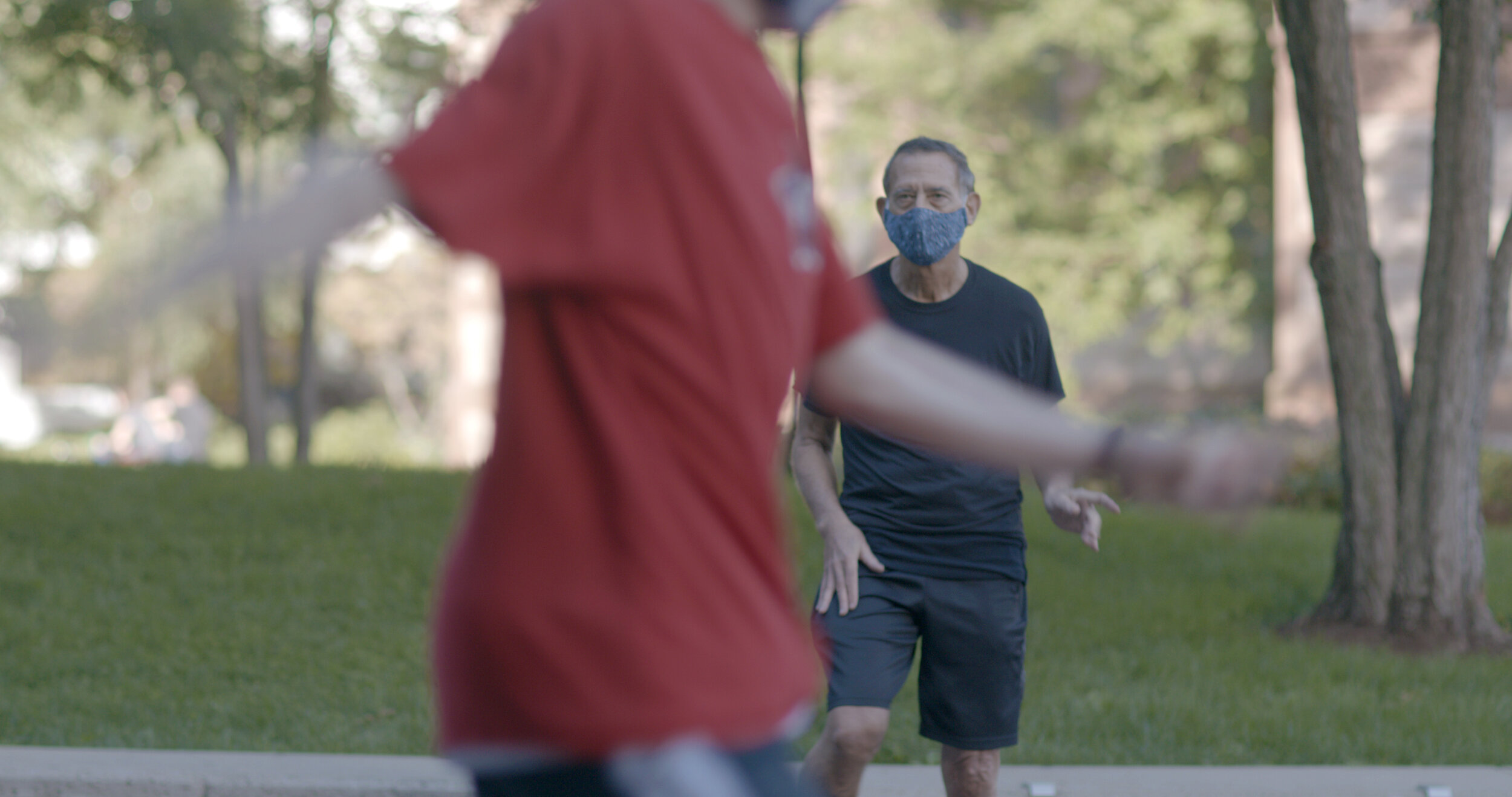
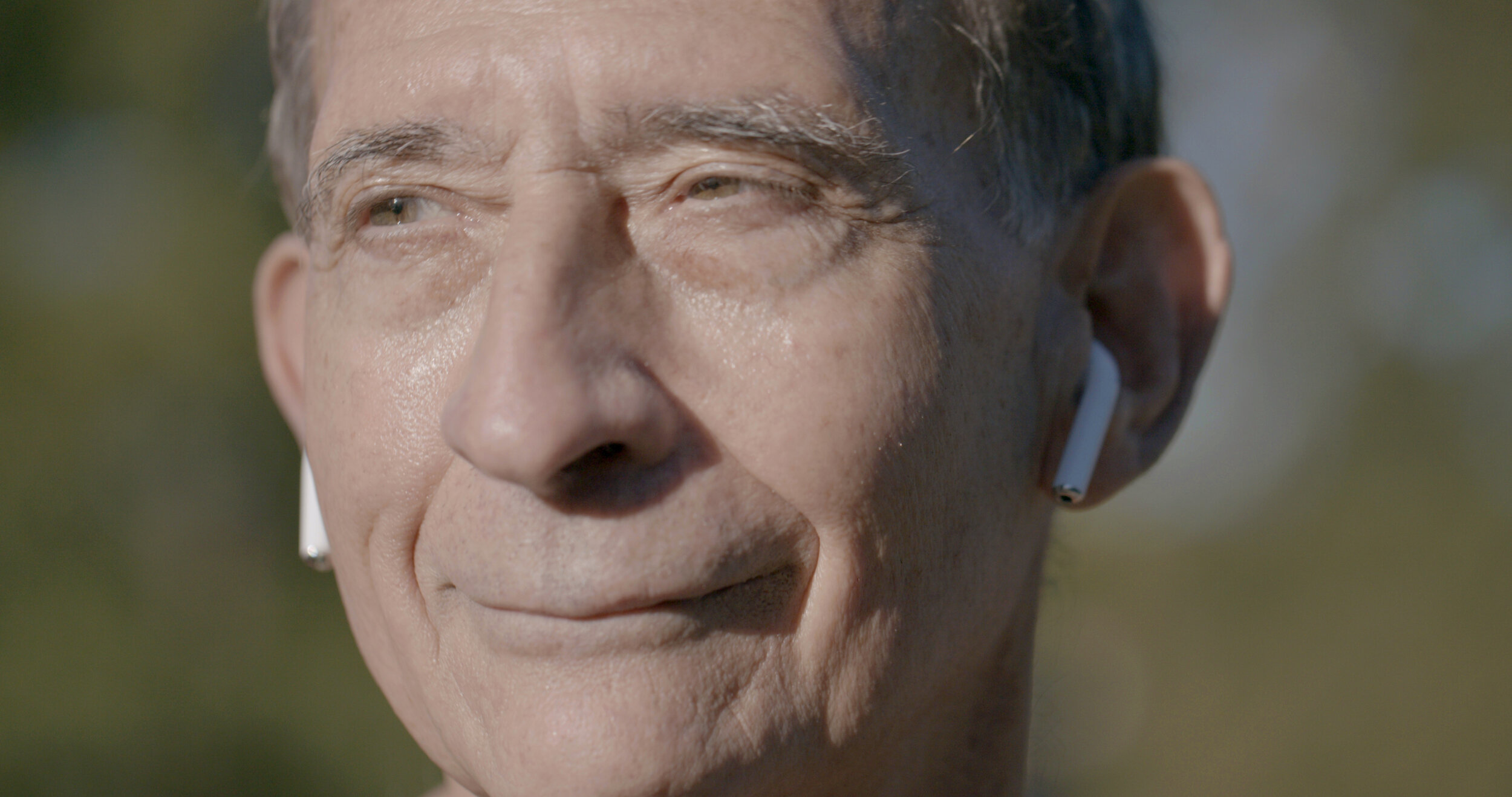
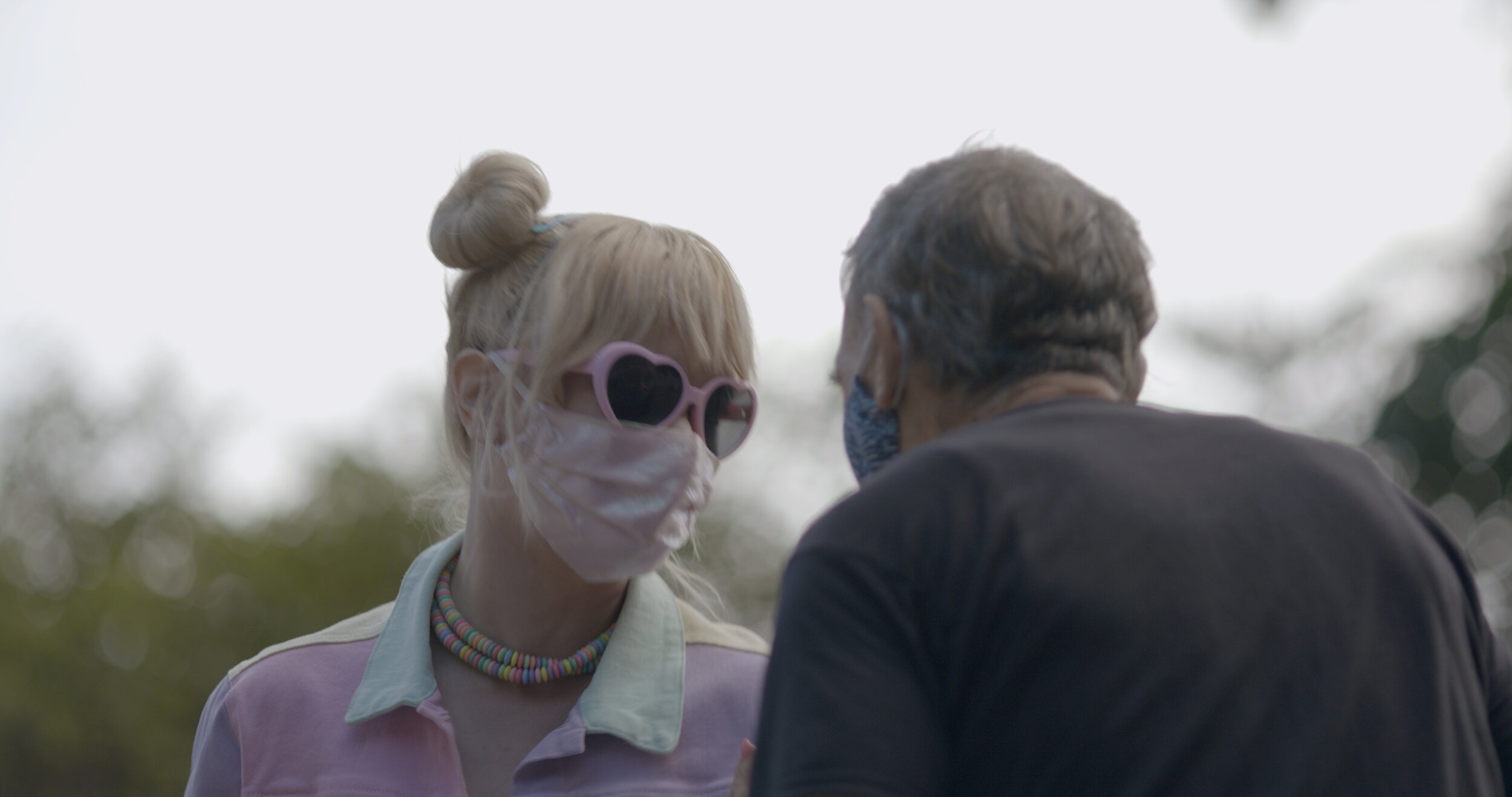
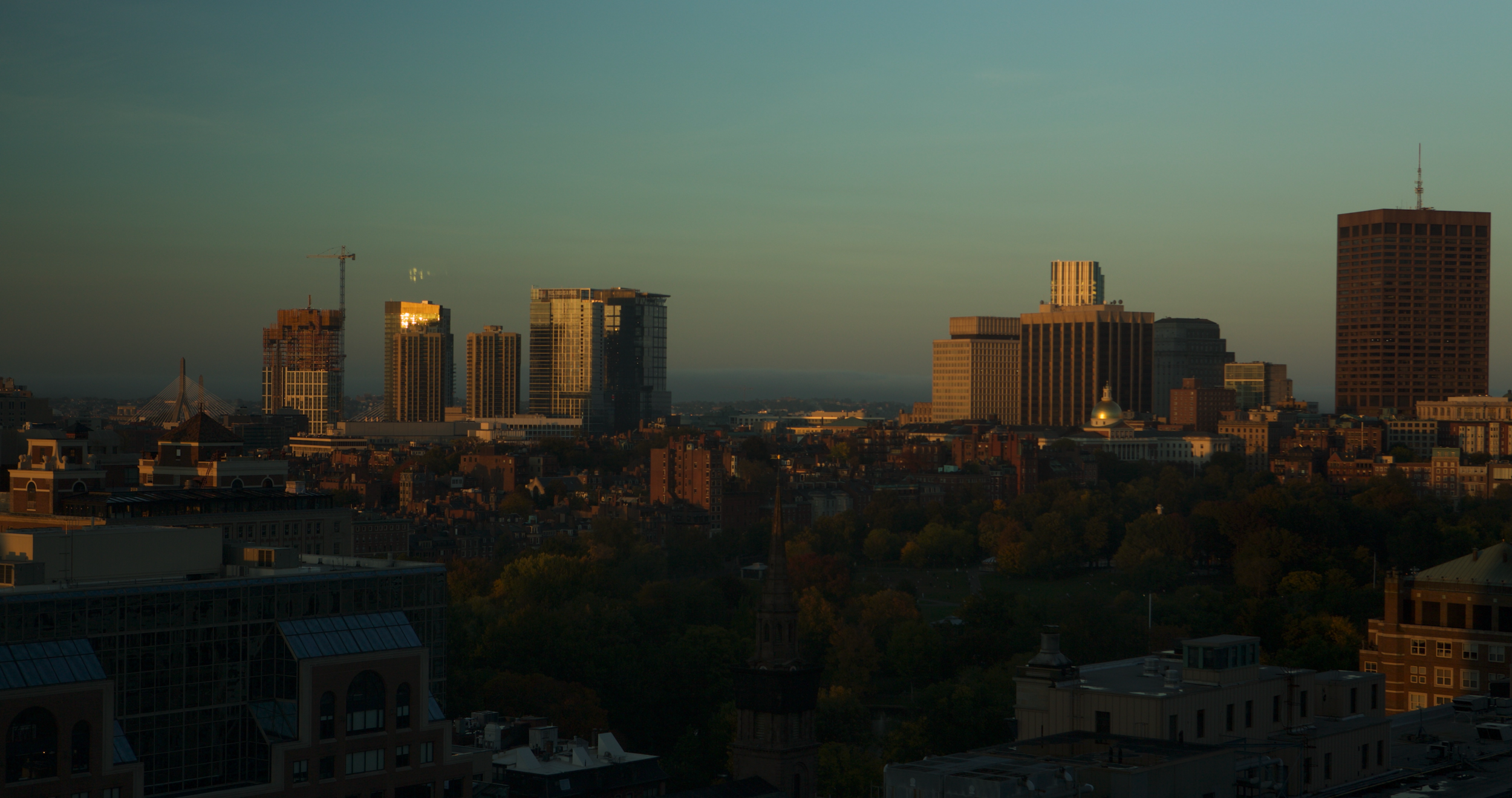
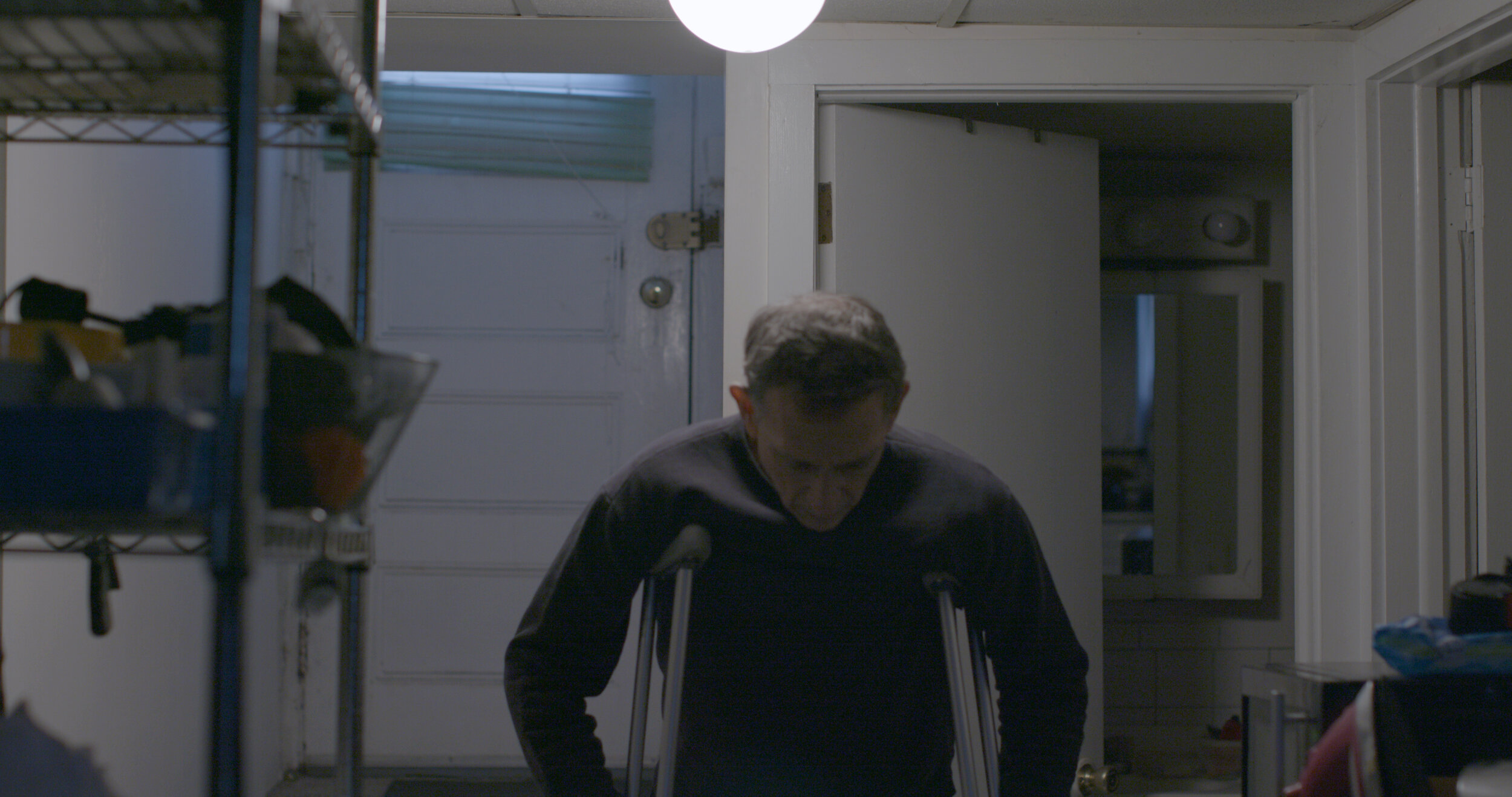
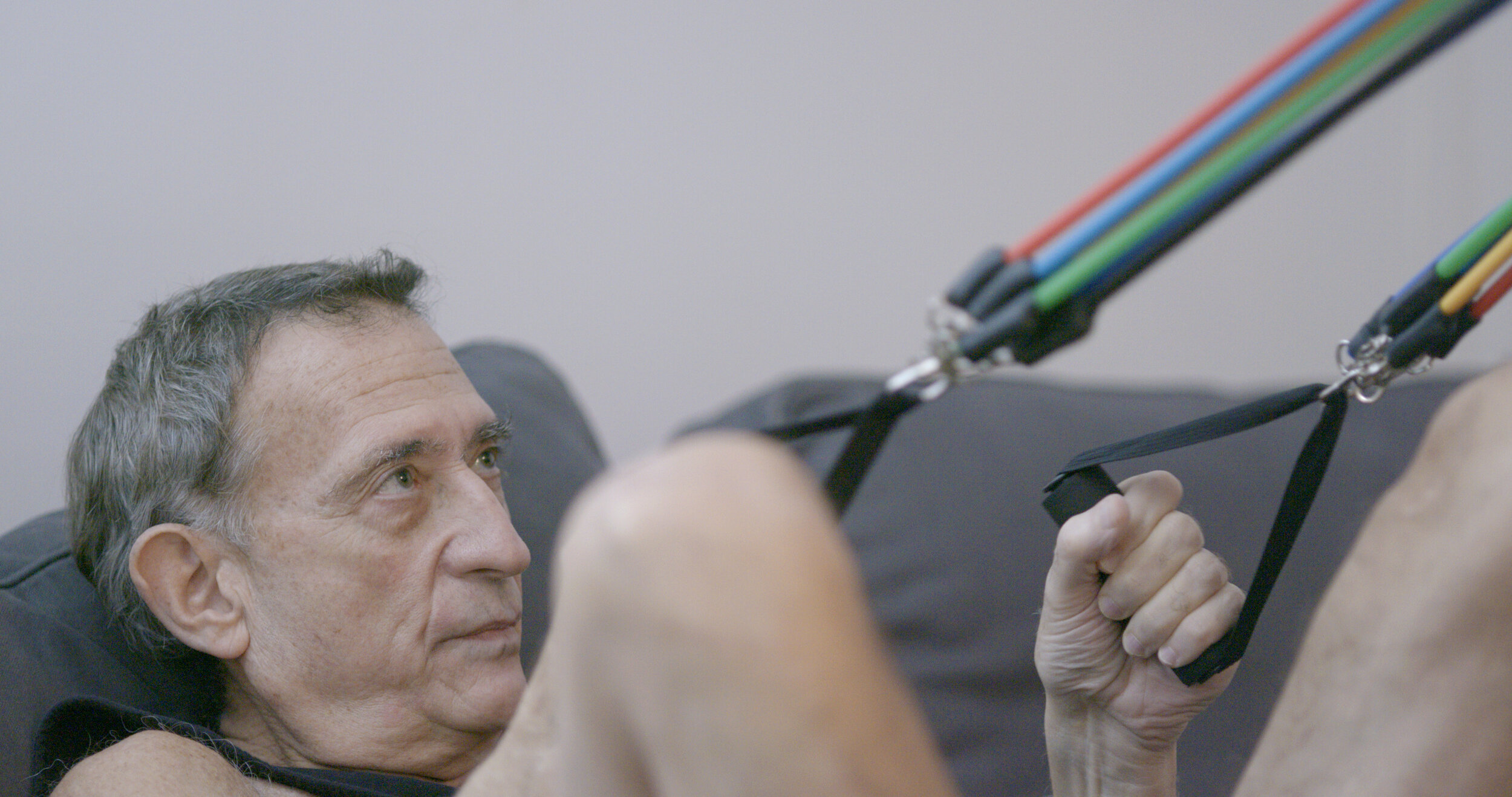
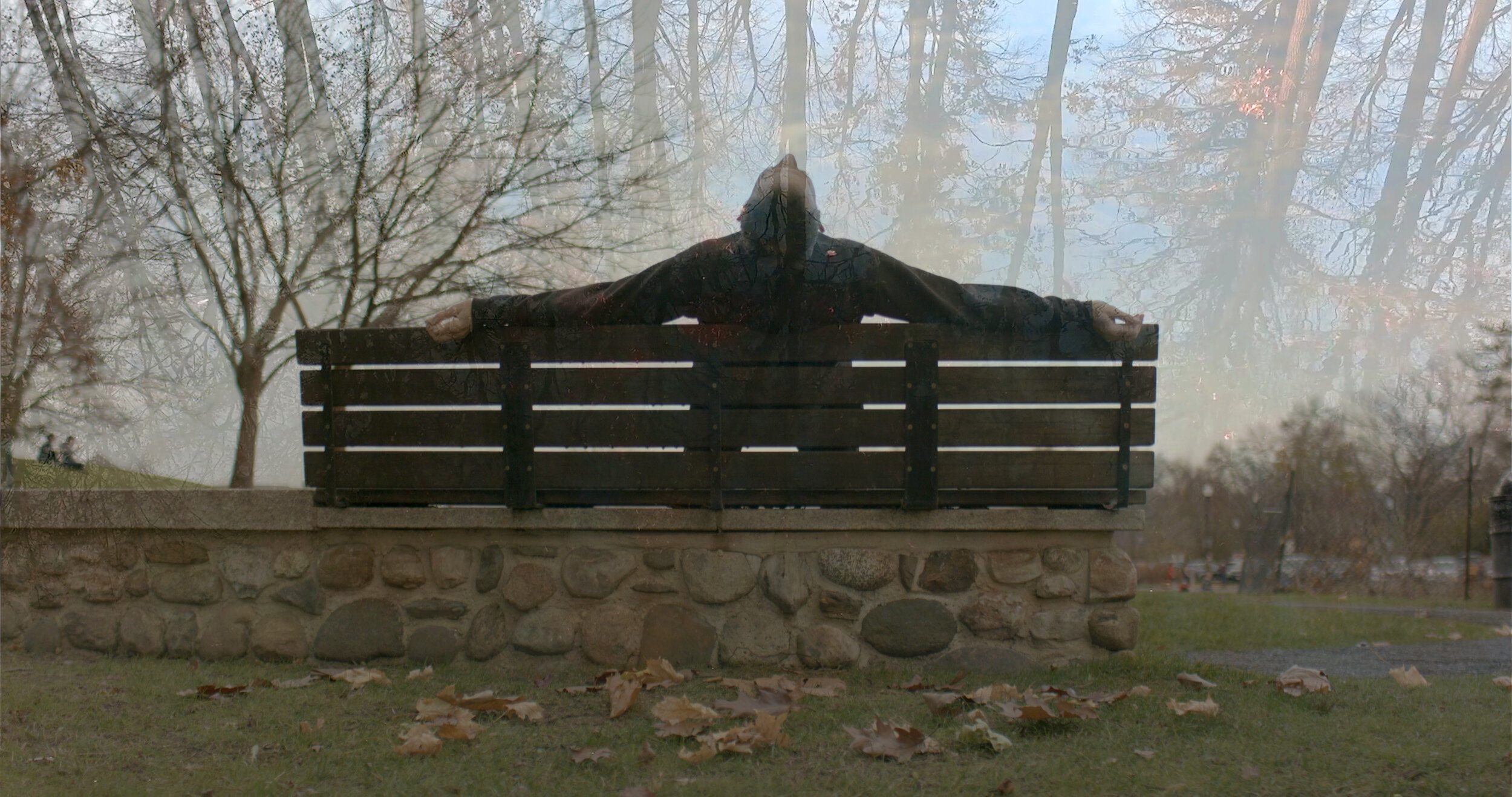
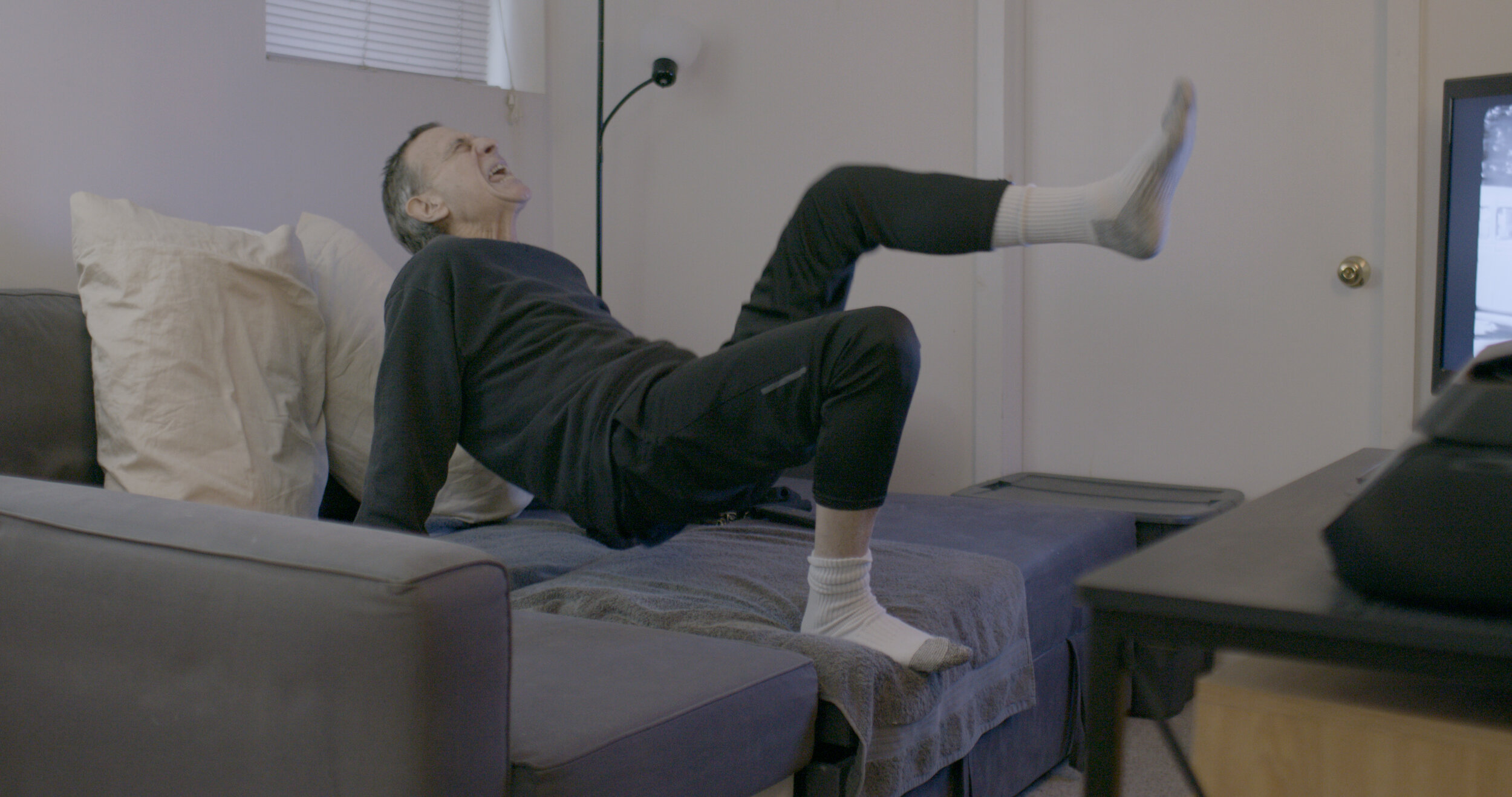
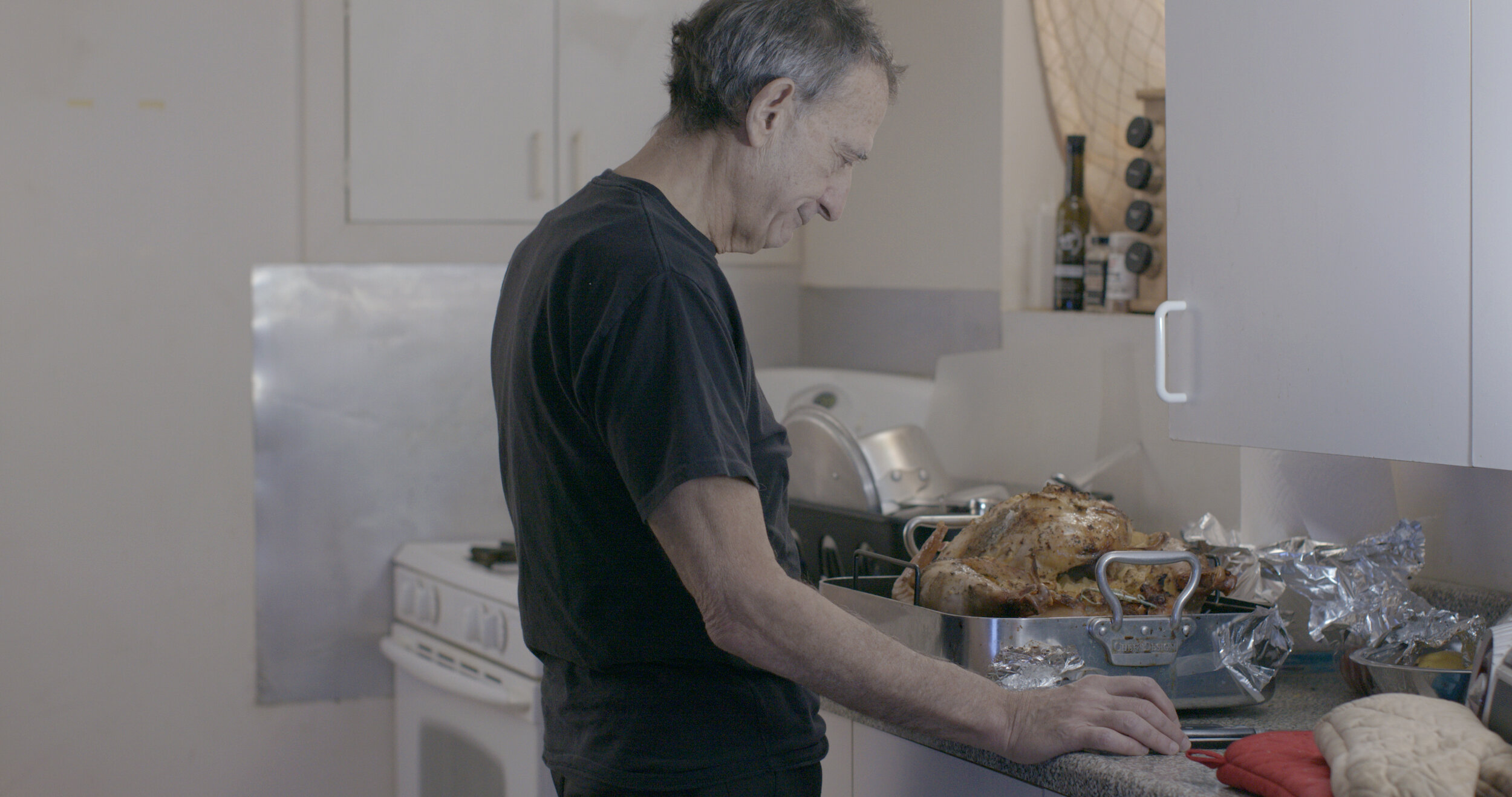
Director’s Testimony
Years ago, when my legs were a bit more spry and my bedtime a bit more lenient, I loved to go out and dance to the hypnotic beats supplied by house & techno DJs at the various nightclubs around Boston. I soon noticed an older man, who without fail, would be bobbing and spinning amongst the throngs of twenty-somethings, smile on his face, eyes closed blissfully, without any indication that he saw himself as a fish out-of-water.
His name was Marc Gedansky and over the years, he’s become a friend as well as a fixture of the small, tight-knit subculture taking place around these venues. Despite his aberrant age, he crystallizes perhaps the thing I came to love most about these people: he lives to dance, unabashedly and with complete surrender to the music, never judgmental, always open-hearted.
When I set out to document his life two years ago, I expected to create a short film about the COVID-19 pandemic, a love letter from an elderly man who had been cut off from his community by the virus and the risks posed by his age. But documentary has a way of sending you in unexpected directions. As I began to tell his story, I discovered that, over the years of dancing, Marc had persevered through eleven orthopedic surgeries on his legs, each one presenting arduous rehabs and the risk that he would never dance again.
In fall of 2020, Marc had a hip re-replacement to repair the worn out socket that had been put in twenty years before. When he came out of that surgery, he suffered from nerve loss, a condition known as “drop foot.” Months later, his recovery was complicated further by lymphedema, an issue where the body cannot properly circulate lymphatic fluid so that it drains into the extremities, causing swelling and immobility. What was already the hardest rehab of his life had gotten that much harder. And now the ending I had always envisioned – of Marc triumphantly whirling around the dance floor, reunited with his younger friends – was in peril.
Furthermore, the isolation imposed by the pandemic had taken on a different light. Rather than a momentary pause from the “norm,” it now gave a sober look at how Marc’s life might look once his body no longer allows him to drink from his dance-floor oasis. Marc is single, lives alone and has structured his entire life around dancing. For a man who is set on defying his age, the story had evolved from one of return, to one of reckoning and reinvention.
Throughout this filmmaking journey, I have been struck by how Marc’s story of resilience resonates with so many. What began as a solo passion project was enthusiastically championed by the local house music community in Boston as scores of folks I had never met generously contributed to our crowdfund campaign. The week we reached our crowdfund goal, we were featured on the front page of Resident Advisor, the world’s foremost electronic music magazine. I earnestly believe that for many young purveyors of dance music, Marc provided a glimpse into their own future as he had for me.
With the funds secured to complete the film, and a more complete creative team, we forged ahead into uncertain territory, unsure whether the triumphant return Marc and I hoped for would ever materialize. While this uncertainty could be troubling at times, I came to trust that my role as a documentarian is to stay the course and keep asking questions, to hone in on the precarious and vulnerable moments where Marc has to dig deep and steel his resolve for whatever lies ahead.
It was also my job to counterbalance this narrowing of focus with the opposite impulse – to broaden the scope of what’s possible for Marc and to help him explore new, sometimes uncomfortable, truths. There were also times where all we could do was laugh – at the absurd poetry of life and the realization of how far we’d “gotten off script.” Nonfiction filmmaking, like life itself, can feel like a constantly forking road, but the stories worth telling tend to have this mix of forward momentum and unexpected hairpin turns.
We navigated those to the best of our ability and I hope our determination and openness shows in the film. The best moments were when we could pause and take stock of the road we’d traveled together. It was in those moments, that I felt confident we’d created a stirring and human portrait of one man’s fight to keep on keepin’ on.
